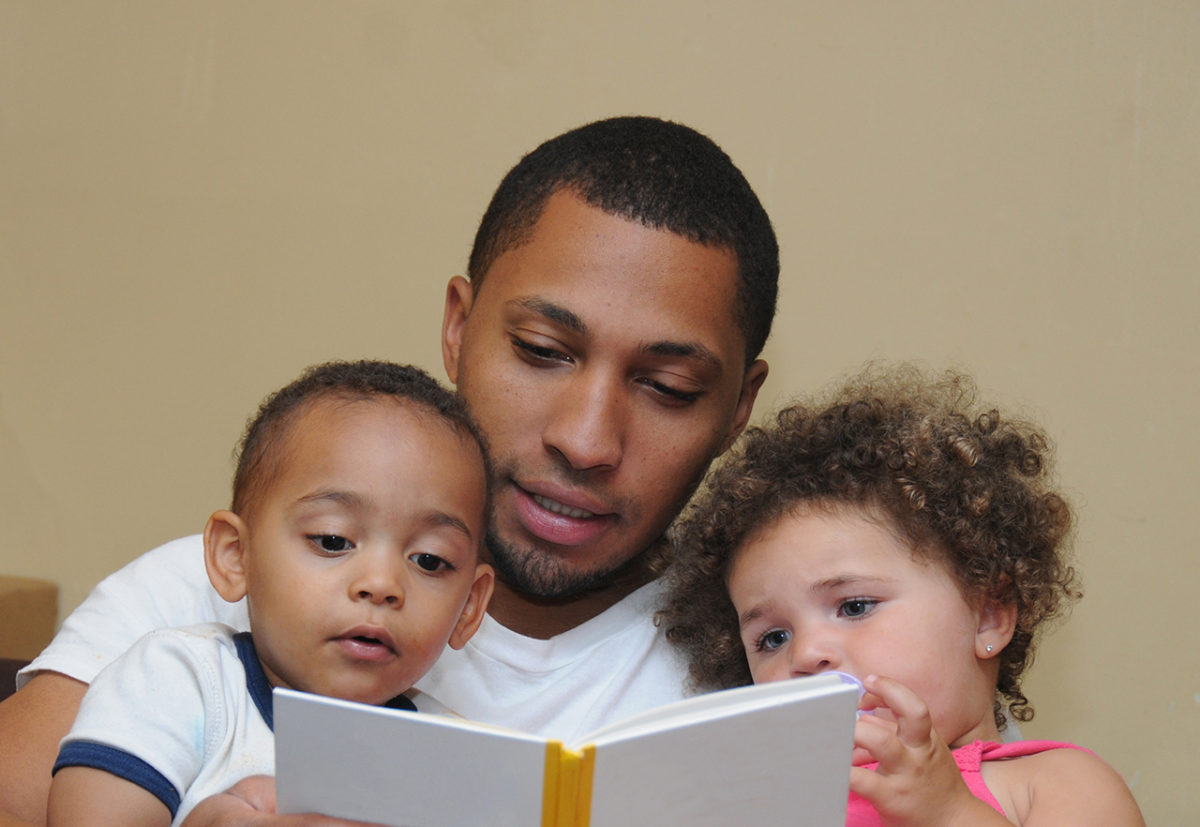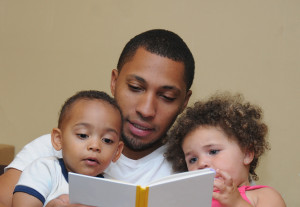In Language Development, Do Dads Matter More?
Researchers have spent decades puzzling out how children acquire language—how thoughts become words, what biology determines, how much environment matters. But until TCNJ professor Nadya Pancsofar teamed up with Lynne Vernon-Feagans of the University of North Carolina, few studies had examined fathers’ roles in the process.

 Researchers have spent decades puzzling out how children acquire language—how thoughts become words, what biology determines, how much environment matters. But until TCNJ professor Nadya Pancsofar teamed up with Lynne Vernon-Feagans of the University of North Carolina, few studies had examined fathers’ roles in the process.
Researchers have spent decades puzzling out how children acquire language—how thoughts become words, what biology determines, how much environment matters. But until TCNJ professor Nadya Pancsofar teamed up with Lynne Vernon-Feagans of the University of North Carolina, few studies had examined fathers’ roles in the process.
For the last eight years, Pancsofar and her colleague have been scrutinizing dads’ influence on their children’s language development. Along the way, they’ve discovered some surprising things—namely that a father’s influence on a child’s language development may actually be stronger than a mother’s.
Pancsofar and Vernon-Feagans started by looking at middle-class families. They videotaped parents interacting with their kids while playing and reading books, examined the footage, then checked back a year later to see how the kids’ language skills had evolved. “We found that when dads used more diverse vocabulary while interacting with their kids, their children later showed more advanced language development,” says Pancsofar. At the same time, they found a mother’s vocabulary had no significant impact.
To verify that their findings weren’t socioeconomic specific, Pancsofar and Vernon-Feagans repeated the study with rural, low-income families. The results were consistent across both contexts: a significant effect for dads and no significant effect for moms.
There are a number of possibilities as to why fathers were found to have more of an influence, says Pancsofar. It could be the context in which she and Vernon-Feagans observed the families. Or, there could have been a difference in terms of the quality of the input each parent was providing. “We also don’t have information about the kind of vocabulary—what was being said by moms versus what was being said by dads—and whether that was different in a qualitative way,” she says.
While the dads-matter-more findings make for splashy headlines, Pancsofar says she has her own interpretation of the studies: dads and moms both matter. “I think it needs to be placed in the context of the wide body of literature, which has consistently found that the way moms talked to their kids mattered for language development,” she adds. “The way I make sense of this is that multiple caregivers have a meaningful impact.”
—Molly Petrilla
Posted on February 20, 2015

